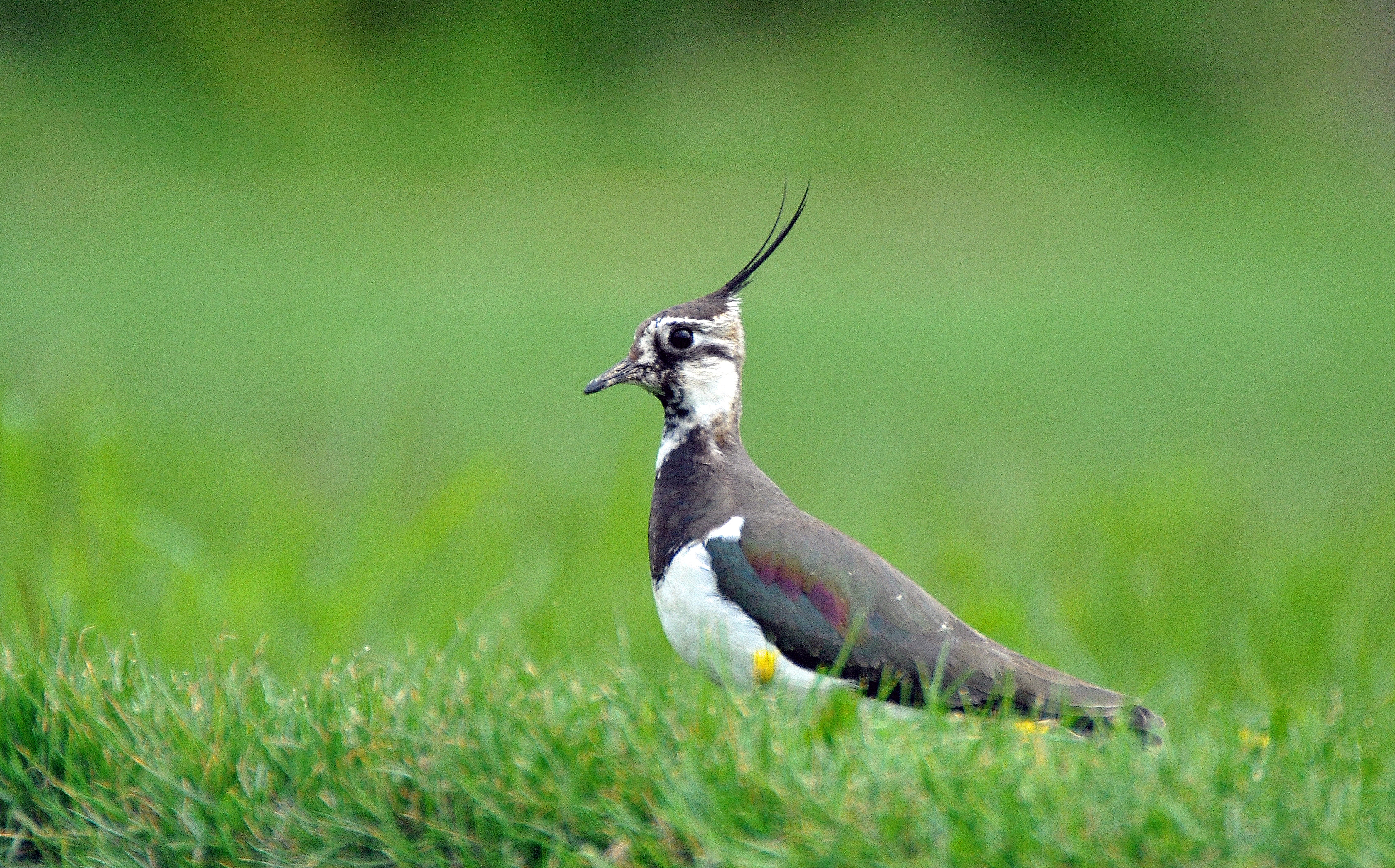Vanellus vanellus
Habitat
Lapwing will live on all types of farmland but prefer mixed farming systems and extensively managed wet grasslands. They prefer wide open landscapes during the breeding season to avoid predators.
Food
Lapwing are surface-feeding birds that benefit from varied cropping. They prefer a mosaic of spring-sown crops, stubbles, grazed pasture and marshes. These areas provide a year round food source of invertebrates. Parents will take their chicks across large distances to feed on wet grassland. This provides a rich source of earthworms, leatherjackets and beetle larvae.
Nesting
Breeding season runs through from spring to summer, starting in March and ending in July. They will breed in areas of spring sown crops and short grassland. Nests are usually small scrapes in the ground and are very vunerable to spring cultivations, grass harrowing and high stocking rates.
Song/Call
“Pwaay-eech”/“waay-ach”- Highly vocal and shrill. Lapwings are also known as a ‘Pewit’ which is one of their classic calls; “Peewit”.
Beneficial Management
- Spring cropping and maintenance of a short sward on wet, rushy pastures will provide ideal nesting conditions.
- Pastures that remain wet into early summer are valuable feeding areas, consider excavating shallow crapes to create more feeding areas.
- Where possible, aim to ensure low stocking rates and that field operations do not destroy nests.
- Fallow plots can provide nesting opportunities if the green cover is sparse and open.
- Consider Fox and Corvid control in breeding season.
Download and print
(opens in a new tab)”>Download as PDF to print >

